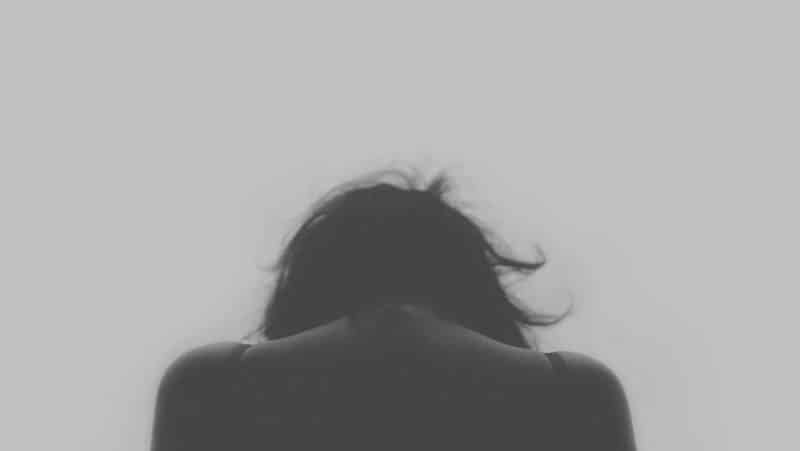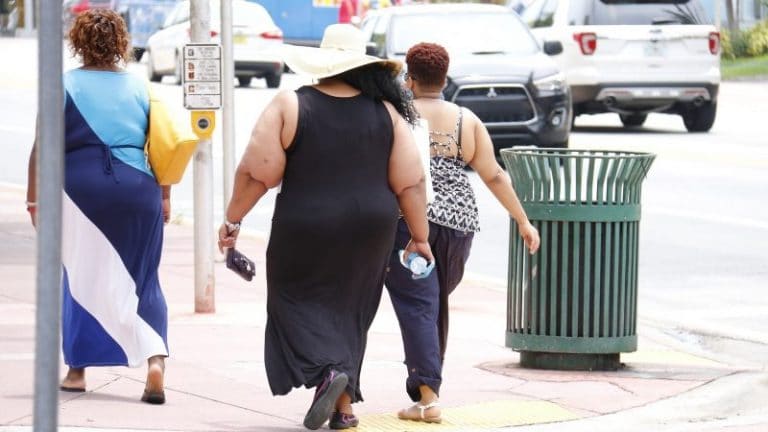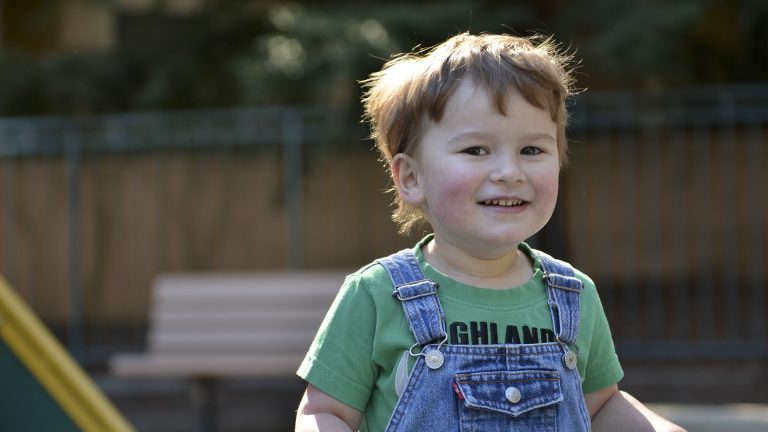Depression and Back Pain: What’s the Connection?

Depression and back pain are intertwined. One often accompanies and even causes the other. The number of people who suffer from back pain is astounding—over 80% of the world’s population deals with the ailment at some point in their lives. As for major depressive disorder, more than 16.1 million people in the US alone have been diagnosed.
Many people are suffering from depression and upper back pain or lower back pain at the same time, and there is a reason for the connection. Read on to discover how the two are related and what the possible treatment options are.
Can Depression Cause Aches and Pains and Vice Versa?
If you have never experienced chronic pain before, it’s a severe case of aches and discomfort that lasts much longer than it should typically take for the body to heal.
For example, when you hurt your back, it should take a couple of weeks at most for things to steadily get better before the problem is completely gone. However, that pain sometimes lingers without getting better at all for several weeks, months, or even years, as is the case if you have degenerative arthritis. The condition can even come and go during that period, but as long as the same issue comes back consistently, it is considered chronic pain.
But does chronic pain cause depression?
For those that have dealt with this type of pain before, you know how absolutely frustrating it can be on a daily basis. You wake up in the morning hoping to feel refreshed and reenergized, only to find out that your body still isn’t doing any better than the day before. You’re stuck in this position of not being able to perform your daily activities such as:
- working
- exercising
- sleeping
- playing with your kids
- sitting or standing for extended periods
- completing routine tasks
How are depression and pain related? When your body isn’t performing like it’s supposed to, or like it used to, especially if you are someone that is usually very physically active, there is no way that you can stop it from altering your mood. For the first few weeks or even months, you may be able to work past the way you are feeling inside.
The question is: can chronic pain cause depression? Studies indicate that people dealing with chronic back pain eventually can’t ward off depression from setting in. People get tired of sitting on the sidelines watching life pass them by because they can’t do what they want.
Pain keeps them from the things they love, and as a result, they start to feel disappointed and sad. That’s how people may start feeling anxiety and depression from back pain. What is the first sign of depression? Some of the factors that determine a depression diagnosis include:
- feeling hopeless, sad, blue, or irritable
- frequent crying spells
- significant weight loss or gain
- problems with too much or too little sleep
- agitated feeling
- low energy
- decreased sex life
- feeling guilty or worthless
- issues with concentration and memory
- feeling suicidal or thinking of being dead
As we mentioned, depression and chronic pain are often intertwined. If you’ve never been in this position before, you might think that contemplating suicide because of back pain might seem a little extreme, but it’s a very real situation that people live with every single day.
Now, let’s take a look at how things work in the opposite manner. Sometimes people can be diagnosed with depression without any existing pain. It’s just an illness that has occurred for one reason or another. In such situations, there’s no link between back pain and depression.
Some of the most common reasons for depression are:
- physical, sexual, or emotional abuse
- traumatic childhood events
- medication
- personal disputes or conflicts with friends or family
- grief from loss or death of a loved one
- genetic background
- moving, getting divorced, having a child, getting married, or other stressful life events
- social problems
- major medical conditions
- substance abuse problems
So, is there a connection between depression and physical pain? Some studies suggest that people who are depressed feel pain more intensely than those that aren’t depressed by up to four times the amount.
But, how does depression cause physical pain? Research and science take it a bit further by proving that people suffering from depression have an increase in proteins called cytokines. These proteins have a direct effect on how the immune system reacts to disease and illnesses. In particular, they can lead to inflammation in the spine. Inflammation is one of the leading causes of back pain, so these increased cytokines can cause discomfort.
When you hear that depression causes pain, it’s not something that is just in the person’s head. There is scientific evidence backing up the interrelationship of lower back pain and depression. To add to that, when you are feeling depressed, you are less likely to be active. You aren’t going to be out exercising and building the core muscles in your body.
In fact, depression is one of the world’s leading causes of disability. That can lead to stress on the ligaments, joints, and disks found in the back. The added stress makes you more susceptible to injury, straining muscles, and general lower back pain.
How Are Depression and Back Pain Linked to COVID-19?
Depression due to the ongoing pandemic has been present and increasing in many people. That’s because many of us are facing stressful challenges. For instance, we all know that social distancing is crucial to reduce the spread of the virus, but it also makes us feel isolated and lonely, increasing depression and anxiety.
However, what you might not know is that apart from depression, muscle aches and back pain are also related to COVID-19, as reported by many people who have already been victims of the virus. Generally speaking, back pain alone isn’t typically a COVID-19 symptom. But it may be an indication of the virus if it’s accompanied by:
- general muscle aches
- fever
- headaches
- chills
- shortness of breath
- cough
In fact, COVID-19 patients may feel muscle pain and body aches, in the upper and lower back, due to the body’s inflammatory response.
Getting Stuck in the Pain and Depression Cycle
When they are both present in the same individual, it’s easy to get stuck in a cycle of dealing with both. Even if you get relief from one, the other is still present. Eventually, things will loop right back around.
Let’s explain the relationship between depression and low back pain once again. Say your back feels better for a few days, but you’re still depressed. With those cytokines and other factors like not getting out of bed and getting moving, there is a greater chance that the back pain will come right back from lack of physical activity.
The only way that you can get relief from back pain and depression or anxiety is by treating them with a comprehensive approach. Treating one without the other isn’t going to do you any good at all. It might provide relief for a short period, but the problem will undoubtedly come back at some point or another.
Treating Chronic Back Pain and Depression Comprehensively
There is a treatment for back pain and depression at the same time. Be that as it may, it’s vital that the medical professional you are working with knows both depression and lower back pain are present so that they can come up with the appropriate plan.
If you only tell them that you are depressed, they may provide prescription medication to alter your mood and suggest counseling, not knowing that your back is keeping you from living your life. Then, when things aren’t getting any better due to a lack of both a prescription medication for back pain and depression, it can be highly confusing for everyone.
Instead, there need to be several different treatments included in the plan to ensure the best results. Some appropriate treatments for depression include:
- exercise
- getting proper sleep
- social support system
- healthy diet
- therapy or counseling
- antidepressant prescription medications
- reducing stress levels
Appropriate treatment options for chronic back pain include:
- exercise
- getting proper sleep
- healthy diet
- pain relievers or muscle relaxers
- injections
- physical therapy
- antidepressant medications
- surgery
When comparing depression and back pain treatment, you can quickly see similar treatment options for both problems. For example, regular exercise and a proper diet. Moreover, depression, back pain, and sleep are also related, as sleep is used to treat both conditions.
These mutual treatment options should be implemented first, and then if additional help is needed, the others can be added in. It’s always recommended to start with the least invasive method to reduce the risk of side effects and other issues.
Exercise is an excellent start to treating depression and back pain because you can build up your back strength while releasing the chemical in the brain known as serotonin. These are endorphins that make you feel good which can naturally reduce the effects of both symptoms.
Moreover, regular physical activity helps with warding off osteoporosis and keeping your bones strong. Before starting any sort of chronic pain and depression treatment plan, you should always consult with your primary care doctor to ensure your body can withstand what you have in mind.
Seeing a Chiropractor for Back Pain
Chiropractors are educated and trained at treating the body as a whole for overall better health and well-being. These professionals know that there is a direct relationship between pain and mood, and they create treatment plans that relieve the symptoms of both physical pain and depression.
With more and more people turning to non-traditional, holistic approaches to healthcare, the idea of visiting a chiropractor has become a lot more popular. In fact, somewhere around 35 million adults and children in the United States get treated by these experts every year.
When you go in for a chiropractic visit, tell your professional about all of the symptoms you are dealing with in both back pain and mental health. They will check the spine to see if there are any misalignments. Sometimes a simple adjustment of one of the vertebrae in your spine can lead to better blood flow and muscle relaxation.
Just like that, with the relief of your lower back, the emotional causes will be releaved, too, because you are more capable of completing your everyday tasks once again. If you don’t want to be administered potentially harmful prescription medications to deal with your health condition, a chiropractor is an effective natural option to try out.
How to Help Someone With Chronic Pain and Depression
Fortunately, there is something you can do to help people around you struggling with this issue. When depression and low back pain are combined in someone you know, the best thing to do is advising them to work with a doctor, as that’s vital in their situation. We also recommend taking look at some helpful resources such as:
- The American Pain Foundation
- The American Chronic Pain Association
- The Academy of Cognitive Therapy
Moreover, another option for those struggling with back pain and depression is engaging in therapy to talk about their problems. This can now be also accomplished with the help of many online therapy sites.
Conclusion
As you can see, depression and back pain are very much connected. One often accompanies the other and can even cause it, perpetuating a vicious cycle that can only be broken by applying a holistic approach that equally addresses and treats the source of both problems. Many people turn to back pain and depression medication. So, if you experience one or both of these conditions, don’t ignore them.
FAQs
Can emotional stress cause back pain?
Yes, it can. As a matter of fact, many people become more sedentary while stressed, meaning they stretch and exercise less—showing the effects of depression in the lower back. Also, when you’re stressed, your breathing changes and causes tension and strain in the mid-back.
Can back pain be caused by depression?
There’s an interrelationship between depression and pain, meaning one can cause the other. Sometimes, the pain worsens symptoms of depression, and then the resulting depression worsens the pain. In many people, some of the first or only signs of depression are headaches or back pain.
Can horseback riding help with back pain and depression?
Many rural places offer equine therapy programs or horseback riding classes for beginners. Although more research needs to be conducted, a study has already proven that equine-assisted therapy can give meaningful benefits in reducing stress, depression, and pain relief. So, those with chronic pain and depression can count this as yet another option for their treatment.
What emotion is associated with back pain?
Let’s try to explain this by what each gender feels while experiencing low back pain. Men with low back pain usually experience anger issues and stress of unsatisfying job life or home life. On the other hand, women with low back pain feel the loss of power and usually bury their emotions.
Can mental illness cause back pain?
Not only can your back pain affect your mental health, but your mental health can also affect your back pain. In fact, studies have shown that untreated depression may worsen physical symptoms, increase your pain intensity, and lower your pain threshold. Moreover, pessimistic people and people with anxiety can make any pain worse than it actually is.
Can depression and anxiety cause physical pain?
We all know about the emotional symptoms of depression and anxiety. But, what you might not know is that depression may cause physical pain as well. So, some of the physical symptoms people with depression feel include:
- headaches
- chest pain
- back pain
- exhaustion and fatigue
- digestive problems
- changes in appetite or weight
- sleeping problems
- dizziness
Is there a medication that treats both depression and pain?
As mentioned, people with chronic pain often experience depression, too. That said, some of the depression and back pain medications are Venlafaxine and Duloxetine. However, some of the side effects of the former are drowsiness, elevated blood pressure, insomnia, and worsen heart problems. And Duloxetine may cause insomnia, dry mouth, nausea, dizziness, drowsiness, constipation, or excessive sweating.






